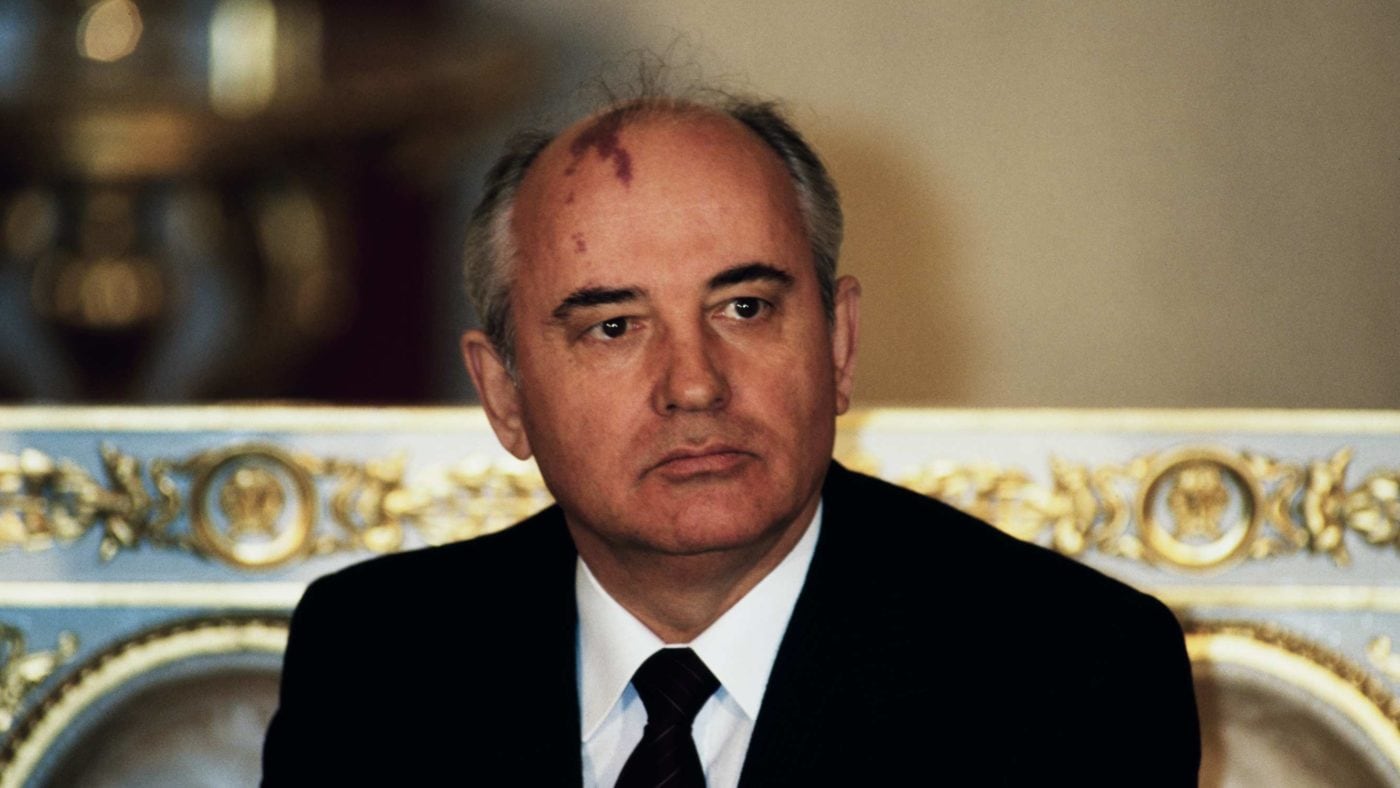The arguments over Mikhail Gorbachev’s legacy generally coalesce around two rather simplistic poles: on the one hand, Westerners who view him as a noble, democratising force who peacefully dissolved a malign super-power; on the other, Russians who view him as a traitor who hobbled their country and ushered in the chaos of the 1990s.
Largely absent from the debate, however, are those in central and eastern Europe who view him as the last in a long line of domineering, repressive despots from a failed Soviet Empire. For whilst those in the West focus on Gorbachev’s liberalising pursuit of glasnost and perestroika, many in eastern Europe remember a leader who persisted with many of the worst aspects of communist totalitarianism.
And for all the talk of liberalisation, the system of political repression continued under Gorbachev, with labour camps and penal colonies for political prisoners still operating even after the dissolution of the USSR. The shadow of the KGB and its various copycat secret police agencies loomed large, harassing those who were not entirely loyal to the party and contributing to an atmosphere of fear. Soviet soldiers were still based in Warsaw Pact countries, poised to step in and put down insurrection.
Indeed, throughout Gorbachev’s time at the helm, the USSR continued to use brute force to put down any hint of insurrection.
In 1986, 200 Kazakhs were killed in protests against the appointment of a Russian Party boss in the region that was perceived as a further attempt at Russification. In 1988, Soviet troops opened fire against Armenian protestors, the ensuing clashes sparked racial tensions in the region and ultimately lead to the Nagorno-Karabakh wars. In April 1989, peaceful Georgian protestors were killed by members of the Soviet Army wielding batons and spades. When fresh protestors gathered against the deaths of the previous ones, the Soviet Army deployed nerve agents against the crowds.
In 1990, Gorbachev turned a blind eye to ethnic clashes between Kyrgyz and Uzbek peoples – only sending in peacekeepers after the situation became too much to ignore. Even then they were told to stay in cities, allowing the situation in the countryside to collapse. Estimates vary as to the death toll, but some place it as high as 1,000 people.
Nor should we forget the intense struggle faced by the Baltic state for their independence. Dozens were killed during the Vilnius Massacre in Lithuania and the ‘Barricades’ in Latvia, with hundreds more injured.
Most toxic of all is, arguably, Chernobyl – the cover-up of which caused untold damage to the surrounding area and put the entire world at enormous risk. As Ukrainian politician Alla Yaroshinskaia has written, the reaction to the accident was a ‘classic Soviet cover-up’, in which ‘the number of people radically affected by the explosion was kept secret and the result was far greater mortality and suffering’.
Much of the nuance and controversy over Gorbachev’s reign is lost in a debate that veers between hagiography and condemnation, depending on who you are talking to. In the West, the award of a Nobel Peace Prize has afforded Gorbachev the status of a great statesman, despite his manifest failures in office. Perhaps his greatest achievement was convincing so many that he was worthy of rehabilitation as a hero who prevented something far worse from taking place. It’s fair to say that is not a view widely shared in the territories that struggled for so long under the Soviet yoke.
Perhaps most telling is how unapologetic Gorbachev remained in his later life. In numerous interviews he stated his regret that the Soviet Union had collapsed at all, and even suggested that it should have been held together. In 2014, he even applauded the annexation of Crimea by Russia – a move that saw him banned from Ukraine.
It is generally considered poor form to speak ill of the dead. But when we look back at Gorbachev’s legacy, let’s at least do so with a clear view, not through rose-tinted glasses.
Click here to subscribe to our daily briefing – the best pieces from CapX and across the web.
CapX depends on the generosity of its readers. If you value what we do, please consider making a donation.


